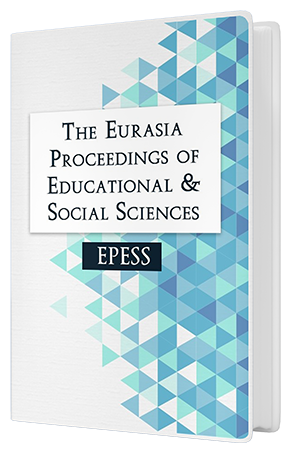COORDINATION LEVEL AMONG THE CHEMISTRY TEACHING CURRICULUM OF PEDAGOGICAL UNIVERSITY AND SECONDARY EDUCATION IN MOZAMBIQUE
Keywords:
Curricula, coordination, training, teaching and learning, examsAbstract
The curriculum as an organized model of the educational program of the school and describing the matter, the method and teaching steps - what, how and when to teach, "is the assessment and analysis in the study: Coordination level among the Chemistry Teaching Curriculum of Pedagogical University and General Secondary Education in Mozambique. The initiated study serves as one of the main ways to curriculum reform and also predominant in the diagnosis of the level of learning and therefore the level of contents of program areas and class approval. It was established as a comparative study because Pedagogical University is the largest higher education institution in the country with the main mission to train education professionals. The main objective of the study is to know the levels of articulation between the teacher training curriculum from UP and General Secondary Education programs in chemistry subject. It focused on analysis of chemistry teaching curriculum of UP and chemistry teaching programs of the 8th to 12th of the national education system, and examination of the 12th from 2000 to 2010. The results prove the existence of gaps in the coordination of programs and major strategic gap between teaching and examination (time and given weight for each content). About research concluded that: 1- there is a lack of coordination between the ESG curricula and training of teachers (UP), thus creating a disparity in treatment considerations and content mode; 2- the introduction of new content or curriculum changes has not strictly followed the steps of the curriculum reform and not proceeded by training of teachers which hinders its implementation, treatment of certain content, providing poor learning, poor dispensing of the contents to examine, consequently the high level of failures. The survey results lead to suggestions for greater coordination in the preparation of curricula, defining priorities and above all avoid discrepancy in dosage of teaching time content with the weight of the exams.Downloads
Published
Issue
Section
License
Copyright (c) 2016 The Eurasia Proceedings of Educational and Social Sciences

This work is licensed under a Creative Commons Attribution-NonCommercial-ShareAlike 4.0 International License.
The articles may be used for research, teaching, and private study purposes. Any substantial or systematic reproduction, redistribution, reselling, loan, sub-licensing, systematic supply, or distribution in any form to anyone is expressly forbidden. Authors alone are responsible for the contents of their articles. The journal owns the copyright of the articles. The publisher shall not be liable for any loss, actions, claims, proceedings, demand, or costs or damages whatsoever or howsoever caused arising directly or indirectly in connection with or arising out of the use of the research material. All authors are requested to disclose any actual or potential conflict of interest including any financial, personal or other relationships with other people or organizations regarding the submitted work.




